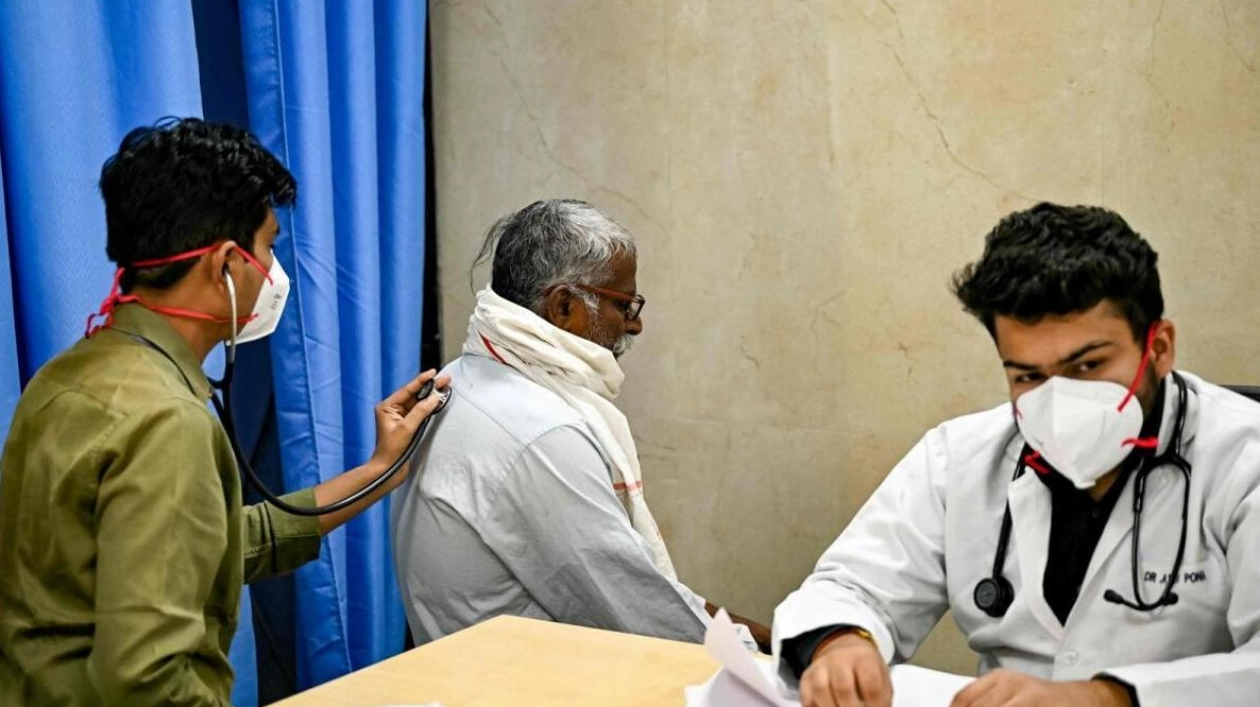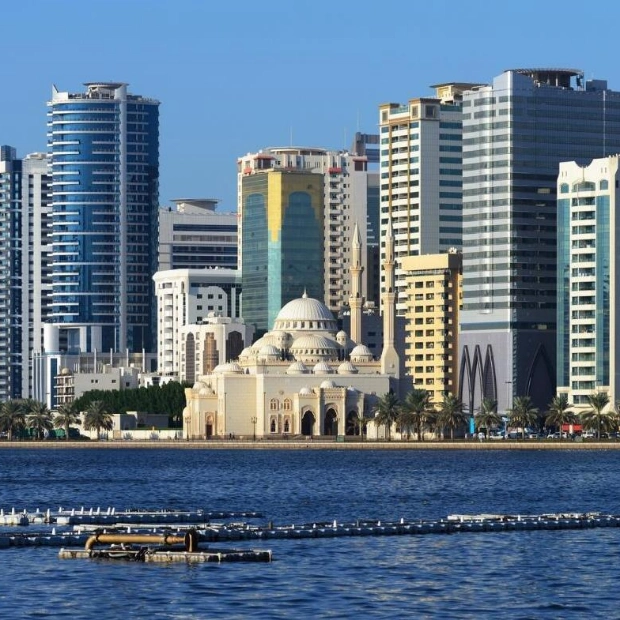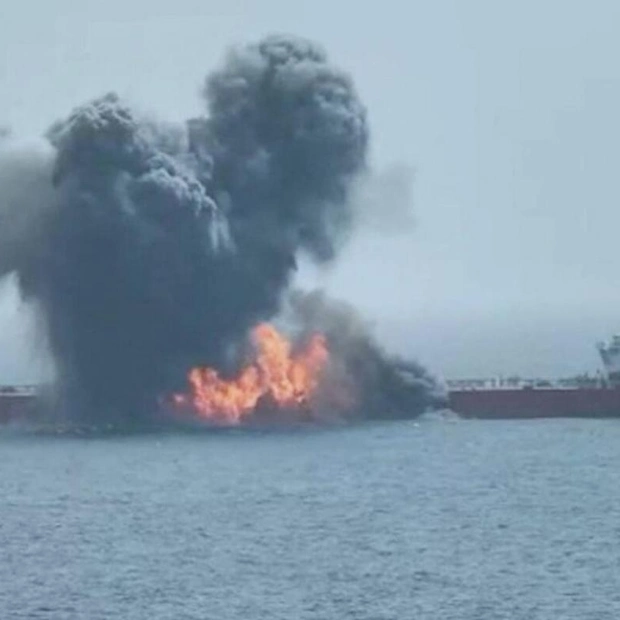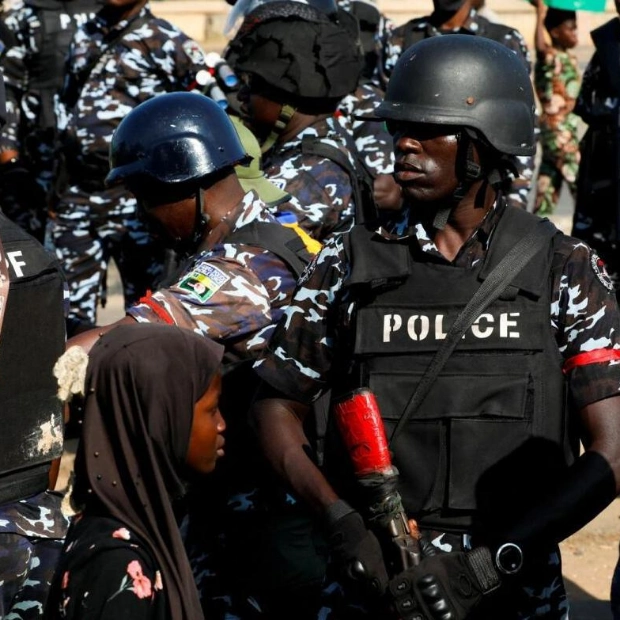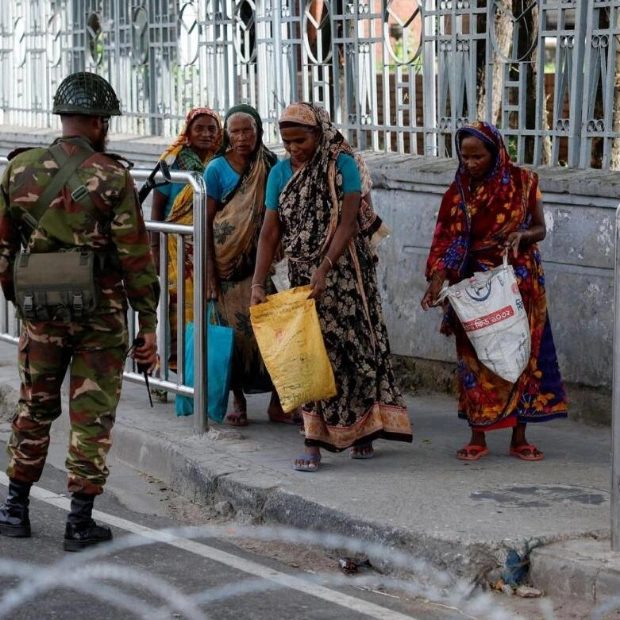Doctors check on a patient at a hospital in New Delhi. — AFP
Question: My parents are living in India. I am told they can be enrolled in the scheme of the Indian Government which takes care of their hospitalisation expenses. As I am based in Dubai, I do not know how to enrol them.
ANSWER: The medical hospitalisation scheme is now available to all individuals aged 70 and above, regardless of their income. Previously, only low-income and vulnerable families were covered. The scheme provides health coverage of up to Rs500,000 per annum for secondary and tertiary-care hospitalisation. If your parents are 70 or older, you can enroll them on the website www.beneficiary.nha.gov.in. Beneficiaries need to verify their identity and eligibility through Aadhaar e-KYC, which serves as the primary document for age and residence proof. No other documents are required for registration. This scheme is cashless, with medical bills paid directly to hospitals where treatment is provided. As of September 30, approximately 30,000 hospitals across India are part of the scheme, managed by the National Health Authority. Beneficiaries can receive treatment at any empanelled hospital by presenting their Ayushman Card or PMJAY Id.
Question: In your earlier column, you mentioned the need for cyber security and the prospects for specialist engineers in this field. Does this mean that every organization will need more people to monitor systems 24x7?
ANSWER: While the demand for cyber security engineers is high and growing, it is not practical to have a team monitoring alerts around the clock. AI has become crucial for detecting and neutralizing continuous threats in critical systems. Integrating AI with cyber security mesh architecture ensures that all security tools work collaboratively. AI enhances detection speed and accuracy across the entire environment. When all network nodes feed data into the AI system, it enables faster and more accurate threat detection. Mesh architectures are vital for hybrid cloud environments, where real-time threat detection is essential. AI collects data from various endpoints and assesses vulnerabilities across a distributed network, facilitating swift threat response. Integrating AI with cloud services enhances security and allows organizations to scale operations without compromising safety. Despite AI's capabilities, human expertise remains indispensable in cyber security. While AI excels in threat detection and response, strategic decisions require human judgment.
H. P. Ranina is a practising lawyer, specializing in corporate and tax laws of India.
Question: Many factories are being established in India to manufacture spare parts, components, and other materials for the defence industry. My Indian family, which fabricates industrial equipment, is considering entering this field. Is it worth pursuing?
ANSWER: The opening of the defence sector to private players in India is seen as a century-defining opportunity. The sector offers limitless avenues for both manufacturing and exports. Countries like the United States, France, Armenia, Brazil, and others are forming joint ventures in India with prominent private companies. In the financial year 2023-24, defence exports reached $2.6 billion, including a variety of arms, ammunition, and fuses exported to around 100 countries. Some countries imported complete weapon systems and platforms from India. Exports to the US primarily consist of sub-systems and components for aircraft and helicopters. India is becoming part of the global supply chain, with several countries relying on India to meet their critical needs. France imports software and electronic equipment from India. Some countries have placed large orders for missiles, artillery guns, weapons-locating radars, bulletproof vests, night vision equipment, etc. The Philippines and other ASEAN countries, along with some Gulf nations, are increasingly interested in acquiring precision equipment developed by India. Therefore, the prospects for manufacturing defence equipment are exceptional, and exports are expected to grow exponentially in the coming years.
H. P. Ranina is a practising lawyer, specializing in corporate and tax laws of India.
Source link: https://www.khaleejtimes.com
